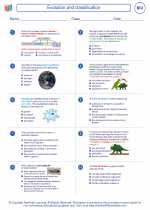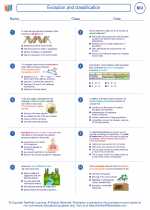Geological Events
Geological events refer to the various processes and phenomena that shape the Earth's surface and interior over time. These events can include volcanic eruptions, earthquakes, mountain formation, erosion, and more. Understanding geological events is important for understanding the Earth's history and how it continues to change over time.
Types of Geological Events
1. Volcanic Eruptions: These are the ejection of materials from a volcanic vent, resulting in the formation of volcanic landforms and the release of gases and ash into the atmosphere.
2. Earthquakes: These are the shaking of the Earth's surface caused by the sudden release of energy in the Earth's crust, leading to the movement of tectonic plates and the formation of faults.
3. Mountain Formation: This process involves the uplift and deformation of the Earth's crust, leading to the formation of mountain ranges through tectonic activity.
4. Erosion: Erosion is the process of wearing away of the Earth's surface by natural forces such as water, wind, and ice, leading to the formation of landforms like valleys, canyons, and coastlines.
Study Guide
Here are some key concepts to focus on when studying geological events:
- Understand the causes and effects of volcanic eruptions, including the formation of different types of volcanoes.
- Learn about the different types of earthquakes and their impact on the Earth's surface and human populations.
- Explore the processes involved in mountain formation, including the role of tectonic forces and the types of mountain ranges.
- Examine the various agents of erosion and their impact on shaping the Earth's surface, including the formation of different landforms.
- Study the geological timescale and the relationship between geological events and the Earth's history.
[Geological Events] Related Worksheets and Study Guides:
.◂Biology Worksheets and Study Guides High School. Evolution and classification

 Worksheet/Answer key
Worksheet/Answer key
 Worksheet/Answer key
Worksheet/Answer key
